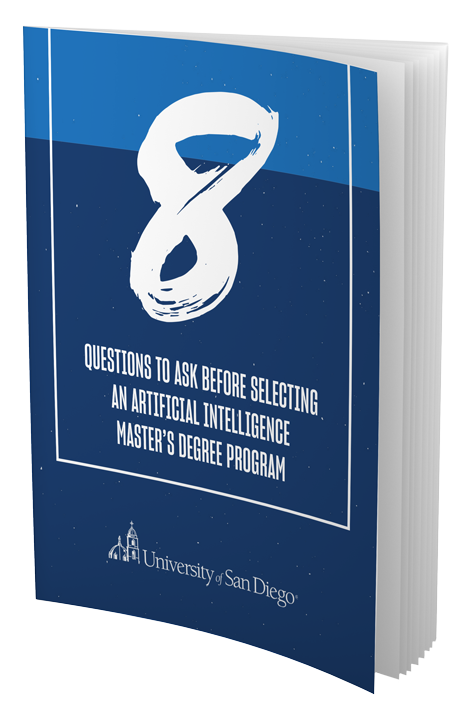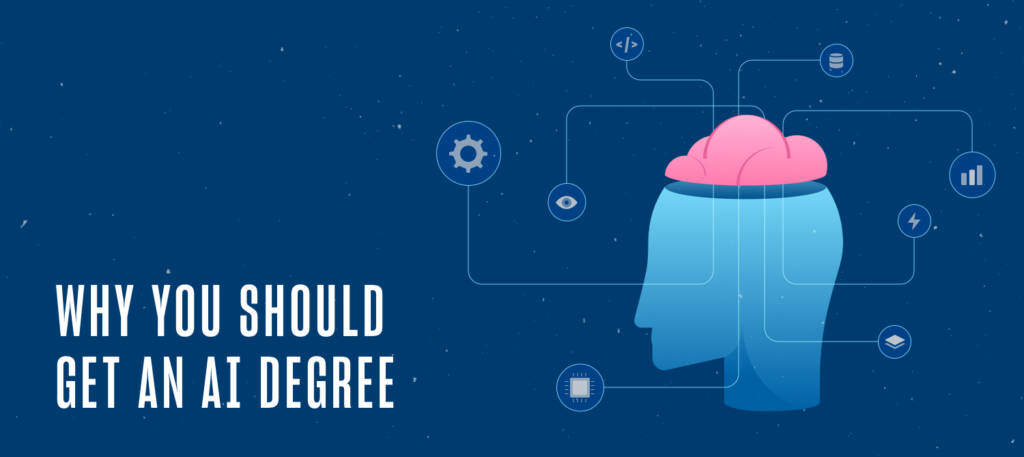Data scientist and machine learning engineer made Indeed’s list of the most in-demand AI jobs that pay at least $95K. Both work with large amounts of data and information, require data management skills and require the ability to “perform complex modeling on dynamic data sets,” according to Robert Half.
But what are the specific differences, and which career path is right for you?
What Does a Data Scientist Do?
A data scientist is a person who collects, analyzes and interprets complex sets of data by using machine learning and predictive analysts. As SAS explains, “data scientists are a new breed of analytical data expert who have the technical skills to solve complex problems — and the curiosity to explore what problems need to be solved. They’re part mathematician, part computer scientist and part trend-spotter.”
Data scientist ranks #3 on U.S. News & World Report’s list of Best Technology Jobs of 2021. It also ranks #6 in Best STEM Jobs and #6 in 100 Best Jobs according to the U.S. News & World Report. Data scientist was also listed as #3 on Glassdoor’s list of 50 Best Jobs in America for 2022 with a job satisfaction rating of 4.1/5.
What Does a Machine Learning Engineer Do?
Machine learning is defined as “extracting valuable information from data,” which could be anything from images to video. Machine learning (ML) is a popular subset of AI, and one of the most sought-after AI positions is that of machine learning engineer, whose responsibilities include using data to design, build and manage machine software applications. But as Discover Data Science explains, ML engineers may often double as data scientists at smaller companies or organizations.
Responsibilities of a data scientist include designing and building ML and deep learning systems, running ML tests/experiments and implementing ML algorithms, according to Workable. Examples of popular ML algorithms include Netflix and Amazon, which provide recommendations for consumers based on previous browsing or viewing history.
Data Scientist Job Requirements
Data scientists typically need to have solid knowledge of statistics, quantitative reasoning and computer programming skills, according to U.S. News & World Report. They must not only be good with numbers but also communication since they are often expected to convey their findings (sometimes to a non-technical audience).
The exact desired skills may vary depending on the position, but the “common denominators” are typically statistics and computational analysis.
Experience with programming languages (such as Python or Java) and tools like Tableau are important, and as Robert Half explains, machine learning skills are also desired since they can assist with pattern identification.
Springboard lists interpersonal skills, data visualization and quantitative and analytical expertise among other top desired skills.
When it comes to education, many companies and organizations prefer a Ph.D. in a related area, such as math or computer science.
Machine Learning Engineer Job Requirements
Machine learning engineers typically require an advanced degree in computer science, math, statistics or a related discipline. Other requirements, as outlined by Robert Half include: data modeling and data architecture skills, programming skills and experience (Python, R or Java), a background in ML frameworks, knowledge of distributed computing systems, advanced math skills and strong verbal and written communication skills.
Differences in Career Paths
Both positions require similar advanced degrees and both positions deal with data — but in different ways.
As TechTarget explains, ML engineers rely more on programming skills than other data positions. “A machine learning engineer is often involved in the same projects as a data scientist, but comes at it from a different perspective. While a data scientist will analyze and research data, an engineer will build the software or platforms that will continue to enable the functionality in production. They often sit between software engineers and data scientists.”
Here’s another explanation courtesy of Springboard: “A machine learning engineer isn’t necessarily expected to understand the predictive models and their underlying mathematics the way a data scientist is. A machine learning engineer is, however, expected to master the software tools that make these models usable.”
Quotes from People in the Field
“By definition all scientists are data scientists. In my opinion, they are half hacker, half analyst; they use data to build products and find insights. It’s Columbus meets Columbo — starry eyed explorers and skeptical detectives.” – Monica Rogati, Data Science and AI Advisor
“The job of the data scientist is to ask the right questions. If I ask a question like ‘how many clicks did this link get?’ which is something we look at all the time, that’s not a data science question. It’s an analytics question. If I ask a question like, ‘based on the previous history of links on this publisher’s site, can I predict how many people from France will read this in the next three hours?,’ that’s more of a data science question.” – Hilary Mason, Founder of Fast Forward Labs, a machine intelligence research company, and the Data Scientist in Residence at Accel
“What sort of personality makes for an effective data scientist? Definitely curiosity…. The biggest question in data science is ‘Why?’ Why is this happening? If you notice that there’s a pattern, ask, ‘Why?’ Is there something wrong with the data or is this an actual pattern going on? Can we conclude anything from this pattern? A natural curiosity will definitely give you a good foundation.” – Carla Gentry, Senior Data Scientist, Analytical Solution
“Just as electricity transformed almost everything 100 years ago, today I actually have a hard time thinking of an industry that I don’t think AI will transform in the next several years.” – Andrew Ng, Co-founder of Coursera
“There’s no one thing that defines AI. It’s more like a tapestry of modern intelligent technologies knit together in a strategic fashion that can then uplift and create a knowledge base that is automated — where you can extrapolate findings from there.” – John Frémont, Founder and Chief Strategy Officer, Hypergiant
“Harnessing machine learning can be transformational, but for it to be successful, enterprises need leadership from the top. This means understanding that when machine learning changes one part of the business — the product mix, for example — then other parts must also change. This can include everything from marketing and production to supply chain, and even hiring and incentive systems.” – Erik Brynjolfsson, Director of the MIT Initiative on the Digital Economy
How Much Does a Data Scientist Make?
Note: Salary estimates vary and are often adjusted in real time based on changing data. Salary figures listed here are estimates from leading employment sites such as the U.S. Bureau of Labor Statistics, LinkedIn, Springboard, Glassdoor, ZipRecruiter, Indeed and Salary.com.
The exact salary amount will vary depending upon your experience, education, the position/responsibilities, etc. Indeed lists the average base salary as $140,994. According to U.S. News & World Report, data scientists make a median salary of $98,230.
Location of the job itself is also a factor. For example, the average base salary for a data scientist in San Francisco is $162,510 whereas the average base salary for the same position in Austin is $111,171 and $135,709 in Seattle.
How Much Does a Machine Learning Engineer Make?
Entry-level machine learning engineers who have up to four years of experience can earn around $97,000, according to Springboard. Mid-level ML engineers with 5-9 years of experience average $112,000, and senior-level ML engineers with 10+ years of experience earn approximately $132,500.
Indeed lists the average base salary for a machine learning engineer at $124,018 with Salary.com providing a range of $107,059 to $133,970.
Examples of Companies Hiring These Positions
There is no shortage of well-known companies hiring for these positions. The following lists are courtesy of recent postings on LinkedIn.
- Liberty Mutual Insurance
- Northrop Grumman
- Kaiser Permanente
- Amazon
- Fidelity Investments
- Boeing
- National Basketball Association (NBA)
- PayPal
- TikTok
- Mastercard
- Meta
- IKEA
- Yelp
- Deloitte
- Carnegie Mellon University
- Toyota North America
- Amazon Web Services
- The Washington Post
- Adobe
- Groupon
- Apple
- Hewlett Packard Enterprise
- Starbucks
- Dana-Farber Cancer Institute
- Vanguard
- The Johns Hopkins University Applied Physics Laboratory
- Microsoft
- IBM
- Capital One
Which Career is Right for You?
Whether you choose a career in data science or machine learning is entirely personal preference since it comes back to your interests, aptitude and overall career goals. Do you want to analyze and interpret data? If so, the path of a data scientist might be a good fit. Do you prefer to work more with machine systems and algorithms? In that case, it would be best to explore machine learning engineer positions.
If you’re interested in either career, we recommend connecting with individuals working in the field who can offer first-hand knowledge and insight. We also recommend exploring master’s degree programs in related fields, which can position you for success and provide a competitive edge in the growing job market.
Advance Your Career with the University of San Diego
The University of San Diego — a highly regarded industry thought leader and education provider — offers two innovative master’s degree programs designed for data and artificial intelligence professionals: the Master of Science in Applied Artificial Intelligence and the Master of Science in Applied Data Science. Both degrees focus on practical applications within each industry and are taught by passionate, student-centered faculty in an environment that’s flexible, collaborative and user-friendly.
Please contact us to speak with an enrollment advisor or to request more information.
.




